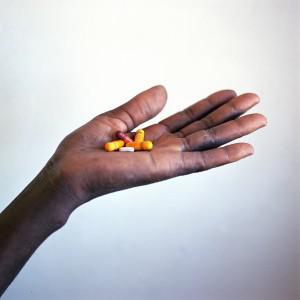KwaZulu-Natal charts gains in HIV despite massive burden

 KwaZulu-Natal (KZN) continues to battle with high rates of HIV, but with more than 207,000 patients on antiretroviral (ARV) treatment, the province’s eThekwini district n has the greatest number of adults on ARVs in the country, according to the latest District Health Barometer by the Health Systems Trust.
KwaZulu-Natal (KZN) continues to battle with high rates of HIV, but with more than 207,000 patients on antiretroviral (ARV) treatment, the province’s eThekwini district n has the greatest number of adults on ARVs in the country, according to the latest District Health Barometer by the Health Systems Trust.
The annual report was launched last night in Pretoria and showed that while the province is making strides in its HIV response, the province continues to struggle with major childhood illnesses.
The provincial HIV infection rate amongst pregnant women is about 37 percent, or ten percent higher than the national average. Seven of the ten districts with the highest HIV rates are all in KZN. Ugu is the worst, with 44 percent of pregnant women living with HIV, followed by eThekwini, each with an antenatal HIV prevalence rate of about 40 percent.
Despite the high HIV rate of mothers, the province has managed to reduce mother-to-child HIV transmission to less than three percent.
It also managed to test three-quarters of babies born to HIV-positive mothers for the virus within eight weeks of birth.
Unfortunately, only eThekwini and Zululand managed to meet the Health Department’s target of starting 85 percent of pregnant, HIV-positive women on ARVs .
KZN has by far the highest cases of pneumonia in children under five in the country, with eight of the ten worst affected districts all in this province. Again, Ugu was the worst affected, with 178 cases per 1000 children under five (national average 66,8 cases), and eThekwini also reported high rates. Pneumonia is the second biggest killer of young children in the country.
Meanwhile, Umgungundlovu has the second highest rate of severe malnutrition in children (13 out of 1000) in the country, according to the report.
More than 30 percent of children under five with severe malnutrition died in the Umzinyathi district in KZN – the worst rate in the country (12.7% average).
On the flip side, women in Umzinyathi were most likely to be screened for cervical cancer.
Meanwhile, eThekwini has almost halved the cases of diarrhoea in children under five – the biggest killer for this age group. In 2011/12, KZN recorded 36,3 cases per 1000 children. This number dropped to 18,9 cases this year.
However, only half the clinics in eThekwini had monthly visits by supervisors,
Amajuba district spent the least per capita in the country on district health services (R796) in comparison to a national average of R1 327.
Meanwhile, the province has the lowest expenditure on district management as a percentage of its primary healthcare budget (2.1%) of all the provinces, with Zululand, Umkhanyakude and eThekwini spending the least.
This is a tribute to the provincial Head of Department’s commitment to cutting unnecessary bureaucracy to ensure there is money for service delivery, but it may cause problems if there are too few people to ensure that delivery is done. – Health-e News Service.
Author
Republish this article
This work is licensed under a Creative Commons Attribution-NoDerivatives 4.0 International License.
Unless otherwise noted, you can republish our articles for free under a Creative Commons license. Here’s what you need to know:
You have to credit Health-e News. In the byline, we prefer “Author Name, Publication.” At the top of the text of your story, include a line that reads: “This story was originally published by Health-e News.” You must link the word “Health-e News” to the original URL of the story.
You must include all of the links from our story, including our newsletter sign up link.
If you use canonical metadata, please use the Health-e News URL. For more information about canonical metadata, click here.
You can’t edit our material, except to reflect relative changes in time, location and editorial style. (For example, “yesterday” can be changed to “last week”)
You have no rights to sell, license, syndicate, or otherwise represent yourself as the authorized owner of our material to any third parties. This means that you cannot actively publish or submit our work for syndication to third party platforms or apps like Apple News or Google News. Health-e News understands that publishers cannot fully control when certain third parties automatically summarise or crawl content from publishers’ own sites.
You can’t republish our material wholesale, or automatically; you need to select stories to be republished individually.
If you share republished stories on social media, we’d appreciate being tagged in your posts. You can find us on Twitter @HealthENews, Instagram @healthenews, and Facebook Health-e News Service.
You can grab HTML code for our stories easily. Click on the Creative Commons logo on our stories. You’ll find it with the other share buttons.
If you have any other questions, contact info@health-e.org.za.
KwaZulu-Natal charts gains in HIV despite massive burden
by kerrycullinan, Health-e News
October 29, 2013



